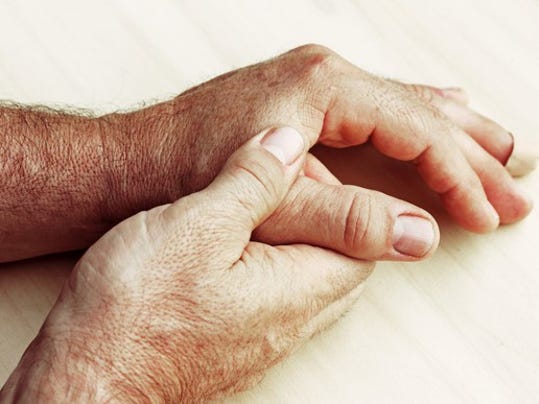Can Vitamin D Help Ease Your Achy Joints?

Many years ago, when I was much younger, I once asked an older gentleman how one knows when they really reach old age. I asked if it was just the age or if it was more than that. He thought for a moment and then told me that old age is marked by achy joints. At the time, my knees ached 24/7 but I didn’t consider myself to be old, even though I felt like it. When I mentioned it, he told me that not all joint pain is the same. Mine was due to injuries while other joint pain is the product of many years of wear and tear and other health conditions.
Many years later, my knees aren’t the only joints that ache. I can now add my ankles, wrists, thumbs, elbow, shoulder and half of my spine. At 66, I think I can safely say that I have reached old age, or at least the beginning of old age.
Like many others who suffer from chronic joint pain, I’ve looked at many different alleged remedies to help alleviate the pain.
I’ve tried a few things including glucosamine chondroitin, a supplement recommended by many. I took this supplement for two years and experienced no difference in my joint pain, so I quit wasting my money on it. However, I have heard from others who said it did make a difference, especially with their knees, so, please don’t rule it out just because it didn’t work for me.
So, what about vitamin D? We know that vitamin D is an important vitamin for healthy bones. Vitamin D helps the body utilize calcium so that it can help build strong bones and keep them hard and strong.
Doctors know that a lack of calcium or a calcium deficiency not only leads to poor bone health (weak and soft bones), but it also has been associated with muscle pain, joint pain and rheumatoid arthritis, especially of the knees, legs and hips. A vitamin D deficiency has also been linked to fatigue, respiratory issues, neurological issues including numbness and mood disorders including seasonal affective disorder (SAD).
If you suffer from any of these, it’s possible that you may be suffering from a vitamin D deficiency. Taking a sufficient amount of vitamin D can help moods, depression, joint pain, muscle pain, osteoporosis and rheumatoid arthritis.
It is recommended that adults get at least 15 micrograms (mcg) of vitamin D every day.
One of the best sources of vitamin D is sunlight on the bare skin. The ultraviolet B rays helps the body make its own vitamin D. One of the disadvantages of old age is that the older we get, the skin loses its ability to produce vitamin D from sunlight. Additionally, the darker the skin, the less vitamin D is manufactured.
If you don’t have the opportunity to spend much time in the sun or are afraid of the risk of skin cancer, you can also obtain vitamin D by eating oily fish like salmon, mackerel and tuna, beef liver, egg yolks, mushrooms, some fortified breakfast cereals and fortified milk. Just a quick note – although many sources say to drink milk for calcium, you need to realize that the processing the milk goes through to remove dangers of bacterial infections changes the form of calcium in the mild, rendering much of it in a form the body cannot use. Most of the calcium in the milk you drink is passed out of your body as waste.
If you don’t eat fish, liver, egg yolks, mushrooms, fortified cereal or milk and don’t spend much time in the sun, you can always get vitamin D from a supplement, but remember that most supplements are not as good as the getting it from natural sources.








Recent Comments